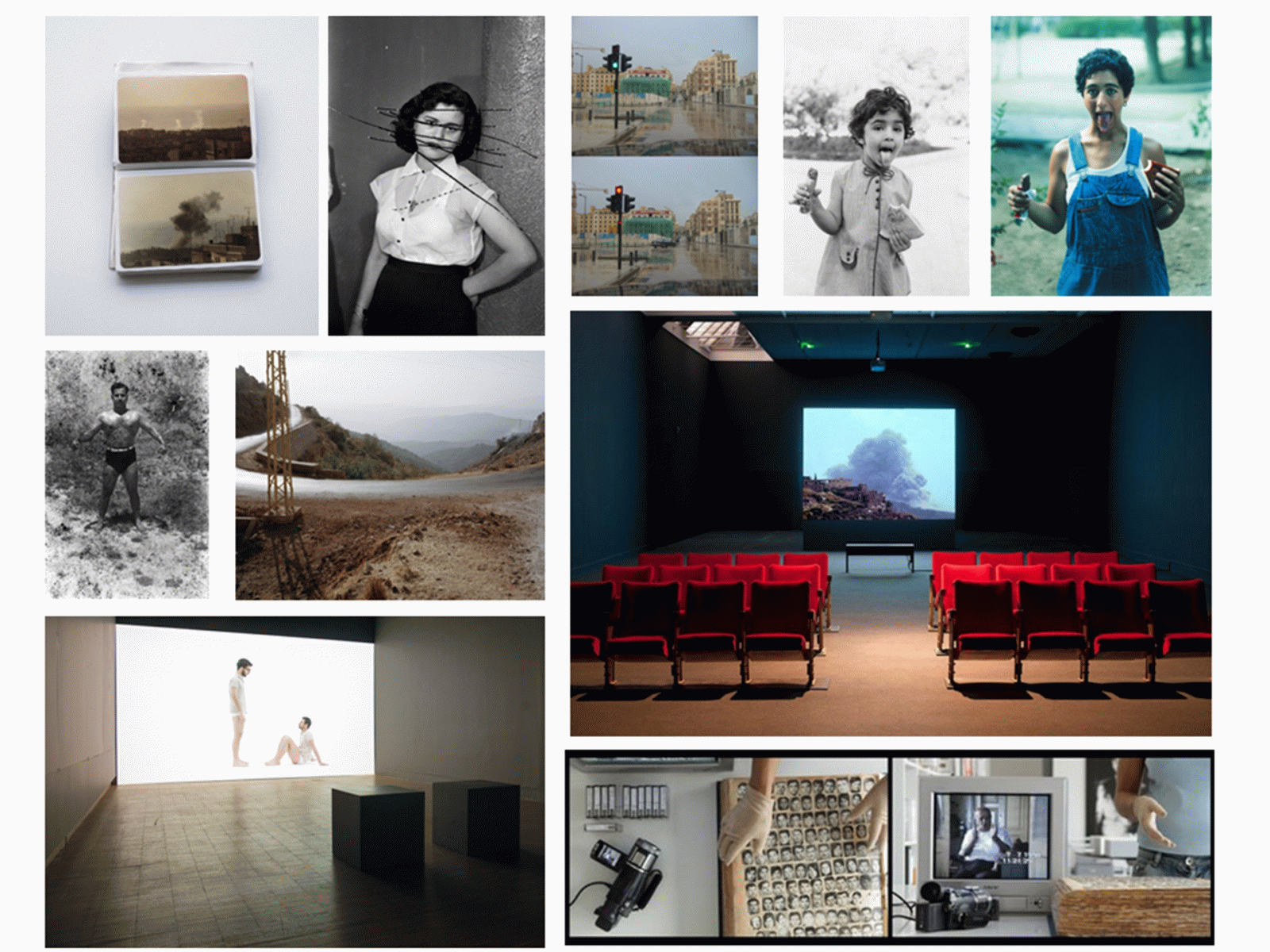Conferenza
Akram Zaatari: Working with photography, photographs and photo archives from an artist's perspective
with Screening "Refusing Pilot"

Akram Zaatari is an image-maker, curator, writer and archivist who lives and works in Beirut. Zaatari is amongst the most influential artists of his generation and has played a critical role in developing the formal, intellectual and institutional infrastructure of Beirut's contemporary art scene. He is co-founder of the groundbreaking Arab Image Foundation (AIF) (1997) – an expanding collection of over 600,000 images – with a mission to preserve and study vernacular and studio photography from the Middle East, North Africa and the Arab diaspora.
Zaatari is widely known for his expansive practice in photography and filmmaking which reflects on the collecting, archiving and dissemination of such images and the performative role they play in the formation of individual and communal identities and histories. This sensibility was formed in the course of living through fifteen years of war in Lebanon, watching it unfold and recording it as a teenager. He has spent much of the last decade excavating the archive of Studio Sheherazade, established in 1953 by Hashem al-Madani in Saida, South Lebanon, Zaatari's city of origin. In his work Zaatari has been exploring issues pertinent to Lebanese postwar condition, particularly the mediation of territorial conflicts and wars through television, and the logic of religious and national resistance, the circulation and production of images in the context of a geographical division of the Middle East. He examines how our individual experiences are deeply intertwined with specific cultural and political histories exploring questions of memory, time, sexuality and human intimacy. Zaatari's practice is rooted in collecting and recontextualizing a wide range of personal documents, including photographs, notes, audiotapes and other recordings, in order to create video and photo narratives. Especially from this point of view his work is of greatest interest with regard to the changing function of the Photothek from a mere collection of photographs to a laboratory for the humanities, concerned with photographs as social, material objects within the ecosystem of the archive.
In this lecture Akram Zaatari will offer an insight into his artistic work, focusing on the project "Refusing Pilot". The talk will include a screening of 34 minutes.
Akram Zaatari (born Saida, Lebanon, 1966) lives and works in Beirut. He studied architecture at The American University of Beirut as well as media studies at The New School University, New York. In 2011, he was awarded the Grand Prize of the SESC Videobrasil Festival, São Paulo. His most recent solo exhibitions are "Akram Zaatari", SALT, Istanbul (2015) and "Unfolding", Moderna Museet, Stockholm (2015). Zaatari represented Lebanon in the 55th Venice Biennale (2013) and featured among others in dOCUMENTA 13 (2012), Liverpool Biennale (2012), Istanbul Biennale (2011) and the Venice Biennale (2007). His work is shown and collected all over the world, including at Tate, London; Bristol Museum, Bristol; Centre Pompidou, Paris; SFMOMA, San Francisco; MoMA, NY; Kunstverein, Munich; MUSAC, Leon; Kunsternes Hus, Oslo; TBA 21, Vienna.
15 febbraio 2016, ore 18:00
Kunsthistorisches Institut in Florenz
Max-Planck-Institut
Palazzo Grifoni Budini Gattai
Via dei Servi 51
50122 Firenze
Avviso
Questo evento viene documentato fotograficamente e/o attraverso riprese video. Qualora non dovesse essere d’accordo con l’utilizzo di immagini in cui potrebbe essere riconoscibile, da parte del Kunsthistorisches Institut in Florenz a scopo di documentazione degli eventi e di pubbliche relazioni (p.e. social media) la preghiamo gentilmente di comunicarcelo.


